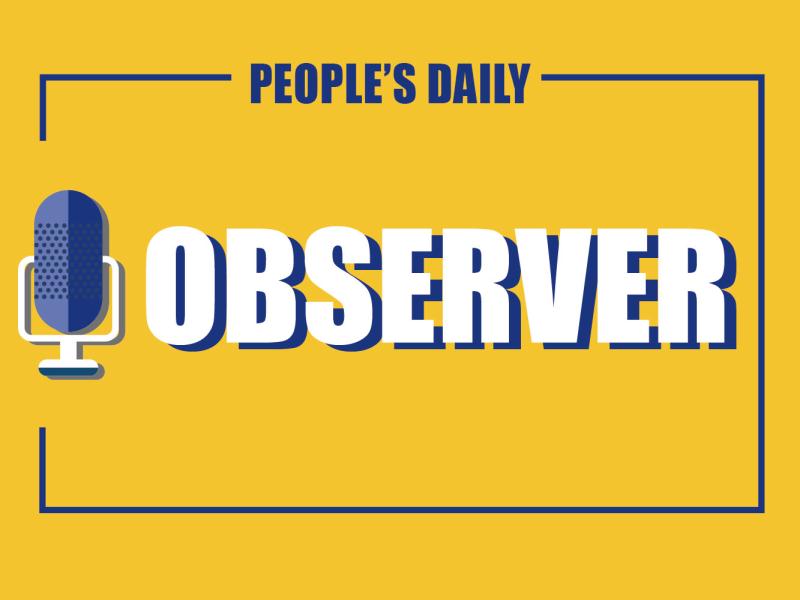
Hong Kong’s High Court on December 23 granted bail to Jimmy Lai Chee-ying, a Hong Kong riot instigator who was suspected of violating the national security law for Hong Kong and conspiring to commit fraud.
The news immediately shocked the public. People from different sectors in Hong Kong, including many legal professionals, voiced their opposition. The Department of Justice of Hong Kong Special Administrative Region (HKSAR) Government resolutely lodged an appeal. Only a few rioters welcomed it. There is widespread suspicion both inside and outside Hong Kong that who could be responsible if Lai, who was charged with a felony, jumps bail or continues to cause chaos in Hong Kong during bail.
Making a ruling based on the law is a basic principle of the rule of law and a criterion that judges must follow. Lai has been charged with multiple crimes, including violating the national security law. According to the law’s Article 42, “No bail shall be granted to a criminal suspect or defendant unless the judge has sufficient grounds for believing that the criminal suspect or defendant will not continue to commit acts endangering national security.”
The article is very clear that “no bail shall be granted” is the norm unless under special circumstances where the judge does not “have grounds for believing” but must “have sufficient grounds for believing” that the suspect will not continue to be evil after being released on bail. It means that granting bail is an exception, and the threshold is so high in order to prevent suspects from continuing to endanger national security during bail. Lai is notorious and extremely dangerous, but he has become the first person to be granted bail among all the suspects arrested in Hong Kong on charges of breaching the national security law. After the national security law was enacted, if a Hong Kong riot instigator like Lai can be released on bail, who else cannot?
Even so, the opposition jumped out again to slander the bail conditions as "too harsh", which is made with purely ulterior motive. Some people are deluded into believing that the bail conditions are strict enough to prevent potential risks, which is totally underestimating Lai.
On one hand, Lai is wealthy and well-connected. It is not difficult for him to plan riots at home or forfeit bail and abscond. On the other hand, Lai is an important pawn of some foreign forces and has great anti-China value. Foreign forces also have motives to facilitate his escape.
As a result, the bail conditions set by the judge are almost in vain and completely out of direct proportion to the potential harm Lai may cause to national security. Take a look at rioters like Ted Hui Chi-fung and Tsang Chi-kin who absconded after bail. Why could not Lai abscond whose power is much greater than them? Are these painful lessons not enough to wake us up?
The judicial jurisdiction of Lai's related cases is also worth consideration. Article 55 of the national security law clearly shows that if “the case is complex due to the involvement of a foreign country or external elements, thus making it difficult for the Region to exercise jurisdiction over the case”, the Office for Safeguarding National Security of the Central People’s Government in the HKSAR shall exercise jurisdiction upon relevant legal procedures.
For a long time, Lai has not only publicly called for foreign sanctions on Hong Kong on the internet or media, but even privately met foreign politicians, begging for mercy and betraying Hong Kong and the country. Since the implementation of the national security law, relevant words and deeds have not stopped. Lai obviously played an important accomplice role in the series of sanctions imposed by the US on Hong Kong. He therefore became the first suspect to be prosecuted for colluding with foreign forces to endanger national security.
After Lai was arrested, US Vice President Mike Pence, Secretary of State Mike Pompeo and other western politicians quickly jumped out to pressure the Hong Kong government into the release, which further confirmed the relevant charges of collusion with foreign forces or external elements and intervention of foreign forces or external elements. Are all these not enough to apply Article 55? It is under such circumstances that many Hong Kong citizens have called for the national security office in Hong Kong to intervene in the case decisively in accordance with the law. It has sufficient legal grounds.
Lai’s case is related to national security and of significance in Hong Kong. If judicial authorities fail to deal with it impartially and act in accordance with the law, Hong Kong’s rule of law and social welfare will be greatly impacted, putting national security in an extremely dangerous situation and exerting incalculable negative effects.
The Department of Justice of HKSAR Government has appealed to the Court of Final Appeal and requested that Lai be detained again while waiting for the appeal.
We expect Hong Kong judicial authorities to strictly implement the Basic Law and the national security law and make the right choice. We believe that after the promulgation of the national security law, rebels like Jimmy Lai will be punished by law fairly on Chinese soil.
(Compiled by Zhu Yingqi)


